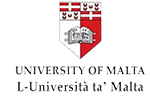The European Commission support for the production of this publication does not constitute an endorsement of the contents which reflects the views only of the authors, and the Commission cannot be held responsible for any use which may be made of the information contained therein.
Project code: 2016-1-IT02-KA201-024241
Who can help me to design MY FUTURE? The project for schools and local career services.
Which careers are more suitable for me? Which are my strength points and my best skills? In which working environments can I use and improve these skills? Who can help me to design MY FUTURE?
These are the crucial questions for most of students and young workers, facing the long and complex transition from the education system to the world of work.
The roles of the school and of the local career guidance services (where they exist) are strategic to provide support to students (in particular to those at risk of early school leaving and social exclusion).
Traditionally career guidance has developed different approaches, tools and models, but most of them are focused mainly on providing information and not designed for the improvement of “Career Management Skills” (CMS) of each person.
This concept of CMS is pivotal for European Lifelong Guidance policies and for the design of all interventions, at any level (as highlighted by the European Resolutions of 2004 and 2008 and by the ELGPN report in 2015).
Career guidance is an essential component of modern education and training systems, but there is a great need of improving digital and metodological skills at local level, both within schools and within public and private services (European Commission – Education and Training – Monitor 2015). This report also highlights the priority for education systems not to reproduce existing patterns of disadvantage. Governments and institutions need to acknowledge the growing diversity in their student populations, improving individualised learning and providing career guidance within education systems, placement offices and local employment services.
Well-managed, flexible transitions between levels and types of education, and from school to work, require high-quality, up-to-date, and personalised guidance and counselling services.
Only in about half of the EU is education and career guidance provided by in-school guidance services and part of the compulsory curriculum in both lower and upper secondary education. Also, individualised learning and career guidance and counselling are pedagogical domains in which at least 40% of lower secondary teachers across the EU express high needs for professional training (Education and Training, 2015).
The fragility of local career guidance systems is also determined by the heterogeneity and discontinuity of services provided by universities, municipalities and public employment services, with practitioners who come from very different professional backgrounds and with various or limited sets of tools or procedures to apply.
This international project aims at involving teachers and practititioners, from different countries and fromdifferent local systems, within a participatory action-research to better understand how to improve career education and guidance at school and how to open and to develop digital resources and skills in this strategic field. Often, there is also a lack of mutual information exchange and low levels of cooperation among local services and schools.
The MYFUTURE project is based on a social innovation initiative, aims at foster local cooperation processes for a sustainability and quality improvement of career guidance services.

© Copyright 2018
This website has been developed by Centro Studi Pluriversum










